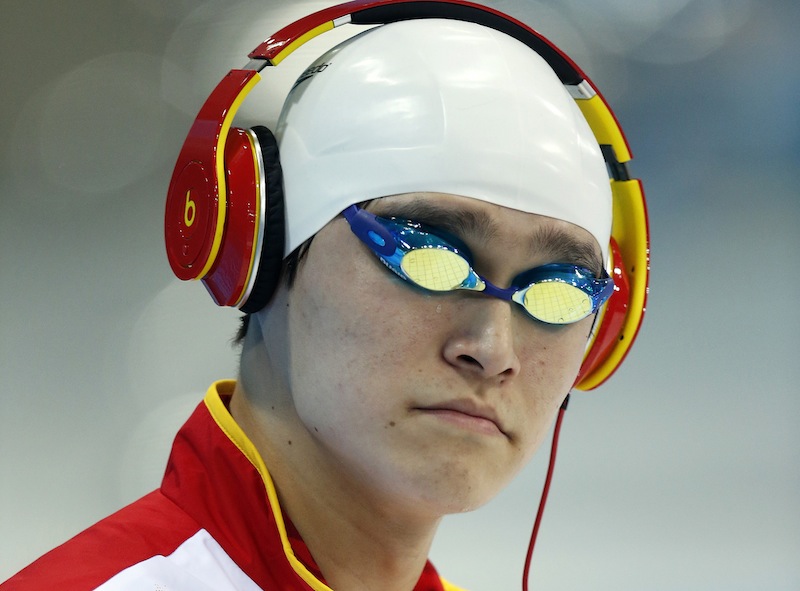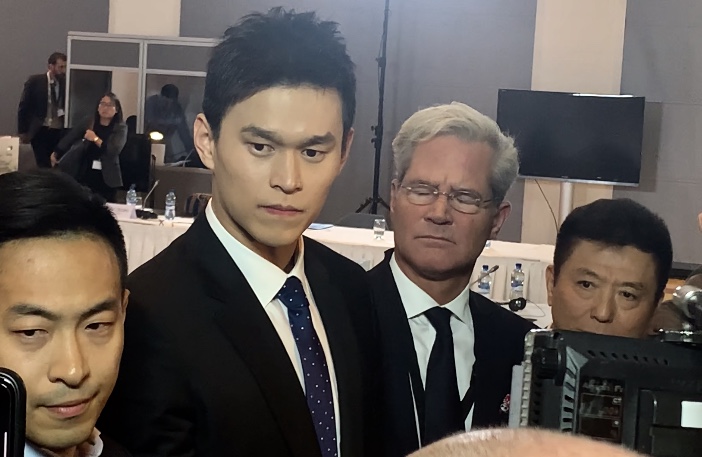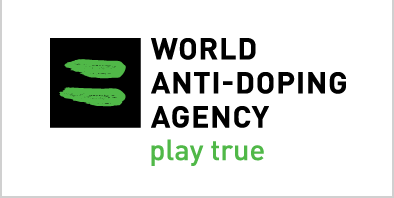Third & Last ‘Guilty’ Ruling Against Sun Yang Returned As New CAS Panel Reduces Ban To Four Years, Three Months

The second anti-doping violation committed by Chinese swim controversy Sun Yang has now led to a damning ‘guilty’ verdict for a third time, the latest and last Court of Arbitration for Sport (CAS) ruling having confirmed that the athlete must serve a penalty, now set at four years, three months.
The first verdict against Sun Yang was a severe warning handed down in a secret FINA report that detailed a bitter row with anti-doping testers that the swimmer sparked through the night in September 2018.
In January 2019, this author, for the Sunday Times, broke the story that FINA had sought to keep a secret only known to the parties involved. My report and subsequent questions to the Word Anti-Doping Agency (WADA) prompted the global watchdog to investigate further before it appealed to CAS to have FINA”s decision not to impose a penalty on Sun Yang overturned.
The hearing was not convened until November19, 2020 in Montreux, Switzerland. That meant that Sun was able to race at the July 2019 World Championships, his presence prompting peaceful podium protests by Mack Horton, of Australia, and Duncan Scott, of Britain. Both swimmers were backed by supportive statements from shoals of fellow world-class swimmers and coaches from around the world.
FINA served warning on all three swimmers, Sun for an aggressive response to Scott while the cameras were still rolling after the medal presentations, below the giant championship mantra on the wall above proceedings. It read: Dive Into Peace.
That verdict was cancelled after a complaint about one of the judges of the three-man panel led to ban appeal from Sun Yang and his legal team. Lodged with the Swiss Federal Tribunal on June 15, 2020, the complaint highlight tweets posted in May and June, 2019, by the chairman of the CAS Panel, former Italian foreign minister Franco Frattini, in which he used racist terms referring to Chinese ethnicity when railing against animal cruelly, namely the tormenting, attempted drowning and slaughter of dogs in China.
Sun Yang – Gone For 4 Years & Possibly Never To Return
A second CAS hearing was called with a new panel, comprising of Dr Hans Nater (Switzerland), President, Prof. Jan Paulsson (France) and Prof. Bernard Hanotiau (Belgium). The hearing was held in the third week of May.
Today, the panel returned a third verdict against Sun Yang, though with the penalty halved to four years. Technically, Sun Yang could make a comeback just in time for Paris 2024, aged 32, but the Tokyo 202One Olympics are beyond him and his right to race at any Olympics again should he wish to might also be the subject of inquiry under the WADA Code: Sun Yang is a two-times offender, having tested positive for a banned substance in 2014 and, albeit long after the positive wears returned, having been served a suspension.
The latest CAS verdict vindicates the young team off Chinese anti-doping testers who were subject not only to “wholly inappropriate” pressure, in the words of CAS judges, from Sun Yang on the evening of the controversial visit but suffered threats from at least two of the swimmer’s entourage, including an anti-doping official and the head of the Chinese Swimming Association.
Sun Yang refused to supply a urine sample but did sign into the chain of command a blood sample before removing it from the testing system before a security guard called bay his mother, Ming Yang, took a hammer and, on the pavement outside the room being used for the out-of-competition spot check, smashed the protective casing housing the test tube with his blood.
WADA maintained throughout that the sample had been signed into the anti-doping chain-of-command and should have been allowed to proceed to testing in an accredited laboratory. Sun and team said that they were simple sticking up for athletes’ rights by insisting on proper paperwork, including ID for each of the three officers at the visit. Many world-class athletes begged to differ and believed that Sun Yang should have used the provision open to him: any objections to testing procedures can be registered in official paperwork’s which can then be considered in the event of any case file needing to be opened.
Both FINA’s Doping Panel and two CAS panels ruled that significant parts of the objections Sun Yang had to the testers did not stack up.
The new panel found that Sun committed anti-doping violations in that he took part in “evading, refusing or failing to submit to sample collection” and that he took part in “tampering or alleged tampering with any part of doping control by any athlete or other person”.
In a statement the CAS also said that Sun acted “recklessly” and that the anti-doping violation should be four years, not eight, due to new leniency in swimming governing body FINA’s doping code.
That doping code came into effect on the first day of 2021, “10 months after the first CAS award was issued”.
Speaking on the ban being cut in half CAS said the following in a statement:

“The new panel considered that the circumstances surrounding the sample collection of September 4-5, 2018 merited a period of ineligibility at the lower end of the range: namely the addition of the three-month period (from 2014) to the four-year ban applicable in this second case. Consequently, the panel concluded that a period of ineligibility of four years and three months commencing on February 28, 2020 is to be imposed on Sun Yang.”
CAS – image – Sun Yang
Sun Yang had his suspension period set at 4 years and 3 months to take account of rule changes that were not in place when he committed his offences not in place when CAS’s original verdict backed WADA’s call for an eight-year ban.
The latest CAS panel could have opted for the full eight years yet again but chose the lower end of the same of possibilities for those found guilty of the offences in question.
WADA statement On CAS hearing – WADA v Sun Yang and FINA
The World Anti-Doping Agency (WADA) welcomes the ruling of the Court of Arbitration for Sport (CAS) in the case of WADA’s appeal against the Fédération Internationale de Natation (FINA) disciplinary panel decision related to an incident that led to a doping control involving Chinese swimmer Sun Yang not being completed as planned.
WADA had lodged the appeal on the basis that Sun Yang refused to submit to sample collection and tampered with the collection process as per the terms of the World Anti-Doping Code (Code) and the related International Standard for Testing and Investigations.
This was the second time the case came before CAS. It was reheard by CAS following a decision by the Swiss Federal Tribunal to uphold a revision application filed by Sun Yang, which set aside the original 28 February 2020 CAS award due to a successful challenge made by the athlete against the Chair of Panel.
WADA Director General Olivier Niggli said:

“The decision by the Swiss Federal Tribunal to set aside the CAS award was limited to a challenge made against the Chair of the CAS Panel and had nothing to do with the substance of this case. Today’s ruling reconfirms WADA’s position in relation to the original FINA ruling, which was that there were a number of points that were inconsistent with the Code. Today’s CAS ruling validates those concerns.”
CAS. Image: Sun Yang with legal and support team at the first hearing – photo by Craig Lord
WADA reviews all anti-doping decisions taken by Code Signatories to ensure they are in line with the Code and the Agency reserves its right to exercise its independent right of appeal when warranted.
End of WADA statement.
The CAS Statement on Sun a Yang in full, noting that the full reasoning is not yet available but will be posted in the coming days:
Lausanne, 22 June 2021 – The Court of Arbitration for Sport (CAS) has issued a new decision in the the appeal arbitration procedure brought by the World Anti-Doping Agency (WADA) against the Chinese swimmer Sun Yang and the Fédération Internationale de Natation (FINA) in relation to the decision issued by the FINA Doping Panel dated 3 January 2019 (the Challenged Decision) whereby Sun Yang was found not to have committed an Anti-Doping Rule Violation (ADRV) following an out- of-competition doping control.
Further to the decision of the Swiss Federal Tribunal of 22 December 2020 to remove the previous President of the Arbitral Panel, the other Panel members (the First Panel) stepped down and an entirely new panel was appointed, composed of Dr Hans Nater (Switzerland), President, Prof. Jan Paulsson (France) and Prof. Bernard Hanotiau (Belgium) (the new Panel). The new Panel conducted a hearing with the parties by video-conference on 25, 26 and 27 May 2021.
The new Panel found to its comfortable satisfaction that Sun Yang committed the following ADRVs when an unsuccessful attempt was made to collect blood and urine samples from him at his residence on 4-5 September 2018:
- Article 2.3 of the 2021 FINA Doping Code (2021 FINA DC) (“Evading, Refusing or Failing to Submit to Sample Collection by an Athlete”).
- Article 2.5 of the 2021 FINA DC (“Tampering or Alleged Tampering with any Part of Doping Control by an Athlete or Other Person”).The new Panel found Sun Yang to have acted recklessly in particular when he refused to allow the blood samples to leave with the Sample Collection Personnel, causing the abortion of the out-of- competition anti-doping control of 4-5 September 2018. Like the First Panel, the new Panel found that the appropriate sanction for such ADRV alone should be a 4-year period of ineligibility, in accordance with the 2021 FINA DC. In view of the fact that Sun Yang committed an ADRV in June 2014 for which he received a 3-month period of ineligibility, the present violations constitute his second ADRV.It is to be noted that the new FINA DC came into force on 1 January 2021, i.e. 10 months after the first CAS award was issued. This development reflects the promulgation of the 2021 edition of the WADA World Anti-Doping Code. The 2021 FINA DC affords considerably greater flexibility in connection with the consequences to be drawn from a finding of multiple ADRVs.
Tribunal Arbitral du Sport Court of Arbitration for Sport
In relation to second or third ADRVs, the 2021 FINA DC states as follows:
10.9.1.1 For an Athlete or other Person’s second ADRV, the period of Ineligibility shall be the greater of:
(a) a six (6) month period of Ineligibility; or
A period of Ineligibility in the range between:
the sum of the period of Ineligibility imposed for the first anti-doping rule violation plus the period of Ineligibility otherwise applicable to the second anti-doping rule violation treated as if it were a first violation, and
twice the period of Ineligibility otherwise applicable to the second anti-doping rule violation treated as if it were a first violation.
The period of Ineligibility within this range shall be determined based on the entirety of the circumstances and the Athlete or other Person’s degree of Fault with respect to the second violation.
This provision in the 2021 FINA DC represents a newly flexible approach. In the past, panels applying the FINA DC were bound to impose a unique sanction corresponding to twice the period of ineligibility applicable to the second ADRV, i.e. the harshest possible sanction. Under the 2021 rules, however, panels may select from a range based on their assessment of the “entirety of the circumstances”.
The new Panel considered that the circumstances surrounding the sample collection of 4-5 September 2018 merited a period of ineligibility at the lower end of the range: namely the addition of the 3-month period (from 2014) to the 4-year ban applicable in this second case.
Consequently, the Panel concluded that a period of ineligibility of 4 years and 3 months (i.e. 51 months) commencing on 28 February 2020 is to be imposed on Sun Yang.
The Arbitral Award will be published on the CAS website in the coming days.
End of CAS statement
FINA Statement
FINA acknowledges the decision rendered by the Court of Arbitration for Sport in the case WADA v. Sun Yang and FINA. FINA confirms that Mr Sun Yang (CHN) has been sanctioned for 4 years and 3 months, effective as from February 28, 2020. FINA will enforce the CAS Award according to its terms, and in accordance with its obligations as a Signatory to the World Anti-Doping Code.
FINA remains committed to the protection of all clean aquatics athletes worldwide and will carefully consider the 90-page award.